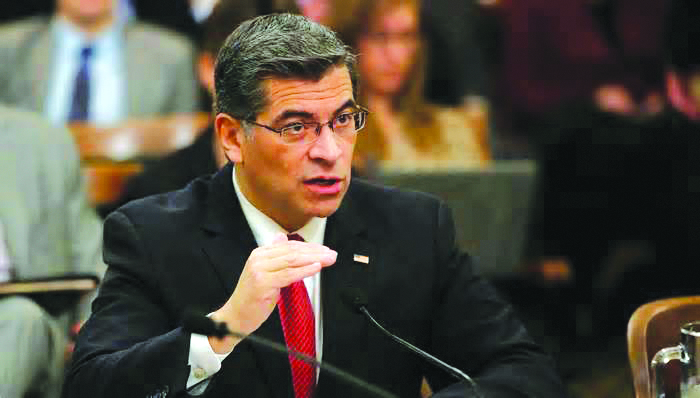President Biden has moved swiftly to issue a record number of executive orders, most of them undoing some of former President Trump’s administrative policies on such issues as the environment and immigration. This is meant as a sign that it’s a new day, and that Biden means business.
Pot advocates are hopeful Biden and Congress will behave similarly on cannabis policies, but that’s far from a forgone conclusion, even as new bills to expand opportunities for pot research and use are introduced by lawmakers. But the new administration is dealing with several emergencies at once, including the Covid-19 pandemic and, bizarrely enough, threats from insurrectionists. It might be a while before any major new cannabis policies, up to and including full federal legalization, are enacted.
In the meantime, we’re left to watch how the new administration might govern under existing laws, while also keeping an eye on how Congress treats less-momentous bills, like the MORE Act to legalize weed, as they wend their way through the process.
So far, two bills have been introduced into Congress by Greg Steube, a House Republican from Florida. His first bill, if passed, would remove cannabis from its Schedule I designation–which makes weed as illegal as LSD and heroin–and place it under Schedule III in the criminal code. That would, among other things, give vast new freedoms to pot researchers, who now are hamstrung by an insane tangle of regulations, especially if they want to conduct hands-on studies of the actual cannabis plant.
Steube’s second bill, introduced on Monday, would allow Veterans Administration doctors to discuss the pros and cons of medical pot with their patients without fear of sanction. It would also prevent veterans from losing their benefits for using legal weed. It’s essentially a watered-down version of a bill that Steube introduced last year.
The most recent version omits a stipulation that would have allowed doctors to prescribe weed to their patients. If it passes, vets would have to get a doctor’s note from a physician outside the VA system to obtain medical pot. That’s not all that hard to do, but the fact that enough House members objected to that provision in the earlier bill to get it stripped from the current one is troubling to cannabis advocates.
The new bill would be a step in the right direction, according to Doug Distaso, executive director of the Veterans Cannabis Project. But he’s disappointed some House members insisted that VA doctors shouldn’t write prescriptions for weed “since these are the providers upon whom veterans rely for full, integrated treatment and care, including cannabis,” he told Marijuana Moment recently.
Meanwhile, cannabis advocates are examining Biden’s cabinet picks for signs of how he might carry out policy under current law as Congress debates various reforms. His Attorney General pick, Merrick Garland, doesn’t have a long track record on weed from his years as a federal judge. He decided in favor of the Drug Enforcement Administration in one case, a lawsuit aimed at removing the Schedule I designation. But his overall approach seems to indicate that he won’t emphasize prosecuting cannabis cases.
Xavier Becerra, Biden’s nominee for Secretary of Health and Human Services, followed in the footsteps of Vice President Kamala Harris, who he succeeded as California’s Attorney General in 2017.
Like Harris, Becerra zealously prosecuted cannabis cases, and repeatedly bragged about how many pot plants his office had burned down. It was a bit different in his case, though, since pot was legal in the state by then, and he had the backing of many people in the legal industry for going after the illicit market.
It’s hard to predict for sure how the Biden administration will deal with pot reform, but it seems safe to say that pot advocates don’t have to worry as much as they did under Trump and his prohibitionist Attorneys General, Jeff Sessions and William Barr. They likely won’t have to worry even as much as they did under Obama who, it should be remembered, paid lip service to reform even as his DOJ was raiding medical-pot purveyors in California and elsewhere.



